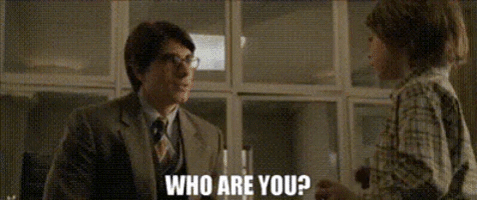Mr. Corleone, all Bastards are Liars.
Shakespeare wrote poems about it.
Michael, you know Vincent Mancini --
Sonny’s Boy.
PLUTARCH'S MORALS.
§ i. Come let us consider what one might say on the education of free children, and by what training they would become good citizens.
§ ii. It is perhaps best to begin with birth: I would therefore warn those who desire to be fathers of notable sons, not to form connections with any kind of women, such as courtesans or mistresses: for those who either on the father or mother's side are ill-born have the disgrace of their origin all their life long irretrievably present with them, and offer a ready handle to abuse and vituperation. So that the poet was wise, who said, "Unless the foundation of a house be well laid, the descendants must of necessity be unfortunate."
Good birth indeed brings with it a store of assurance, which ought to be greatly valued by all who desire legitimate offspring. For the spirit of those who are a spurious and bastard breed is apt to be mean and abject: for as the poet truly says, "It makes a man even of noble spirit servile, when he is conscious of the ill fame of either his father or mother."
§ iii. Next must we mention, what was not overlooked even by those who handled this subject before us, that those who approach their wives for procreation must do so either without having drunk any wine or at least very little. For those children, that their parents begot in drink, are wont to be fond of wine and apt to turn out drunkards. And so Diogenes, seeing a youth out of his mind and crazy, said, "Young man, your father was drunk when he begot you."
Let this hint serve as to Procreation: now let us discuss Education.
CUT TO: A helicopter carrying Michael and Vincent. They are traveling to the meeting that Don Altobello had arranged at Michael's request.
VINCENT
I'd like to take Joey Zasa up for a ride in this and drop him.
MICHAEL
Joey Zasa is nothing. He's a small time enforcer – Mobs, threats, nothing. We'll be able to see him coming, a mile away.
VINCENT
We should kill him before he kills --
MICHAEL
No!
(then)
Never Hate Your Enemies. It affects your Judgment.
CUT TO: Outside an Atlantic City casino where the Commission meeting is to take place, as set up by Don Altobello on Michael’s request. The Text Over reads: Atlantic City, New Jersey.
<Michael and Vincent are welcomed ["Nice to see you again, Mr. Corleone. Mr. Mancini."].
CUT TO: Suite where Commission meeting is to be held.
<A band is playing and women are milling about the busy room full of Dons. Joey Zasa enters and Michael and Vincent enter shortly after. On Michael's arrival the band stops playing and the women are ushered from the room. Vincent nods at Joey Zasa. Once the room is cleared of all but those at the meeting, Don Altobello begins proceedings.>
DON ALTOBELLO (addressing Michael to the Commission)
We entrusted you to manage our money in the casinos. It's not even, twenty years. You sold the casinos, and you made fortunes for all of us. Bravo Don Corleone!
<The room applauds Michael. Joey Zasa gives a half-hearted clap.>
MICHAEL
Thank you. Friends, I have come here, because, our business together is done. We have prospered, and now it is time for us, to dissolve, the business relationship between us.
<There are murmurs of protest.>
MICHAEL
That's it. But I do have a little surprise
(then, to Neri)
Al?
<Al removes a bundle of envelopes from his jacket.>
MICHAEL
Your shares, in the casinos. I thought I'd cut through all the red tape so you can get your money right away.
<This news is met with a more positive response.>
A DON
Fifty million dollars!
<Vincent is passing out envelopes.>
MICHAEL
Not everyone gets the same…
VINCENT (whispering into Joey Zasa’s ear)
Nothing for you…
MICHAEL
…It depends how much you invested, and how long for.
<The Dons all marvel at how much they have just received, "Wonderful! Woah! Grazie!">
A DON
Michael, this is really generous!
A DON
Hey, Perisi, how much did you invest?
DON PERISI (putting his envelope in his jacket pocket)
I don’t remember…
DON ALTOBELLO
Michael, you're blessed.
<Joey Zasa has heard enough.>
ZASA
My family has done much of the hard work; taken many risks. All to make money, for the rest of the families.
MICHAEL
You all know Joey Zasa. He is, I admit, an important man. His picture is on the cover of the New York Times magazine. He gets the Esquire magazine award, for the best-dressed gangster! The newspapers praise him, because, he hires Blacks into his family, which shows he has a good heart. He, is famous. Who knows? Maybe one day, he will make all of you, popular.
ZASA
It's true. I make more of a, bella figura, that is my nature. But I also want to make a move into, legitimate enterprises. I'd like to get a little pin from the Pope. Sure, I take the Blacks and the Spanish into my family, because, that's America.
MICHAEL
And you guarantee, they don't deal drugs in those neighborhoods.
ZASA
I don't guarantee that. I guarantee I'll kill anybody who does.
DON ALTOBELLO
Let me talk to him, let me talk to him.
MICHAEL
Who can refuse, Don Altobello…
<The Dons are passing around a tray full of gold jewelry and pearls, and each take one.>
DON ALTOBELLO
Joey...
JOEY (interrupts)
NO! I say to all of you, I have been treated this day, with no respect. I've earned you all money. I've made you rich, and I asked for little. Good. You will not give, I'll take! As for Don, Corleone, well he makes it, very clear to me today, that he is my enemy. You must choose between us.
<Joey storms out. Don Altobello chases after him.>
ALTOBELLO
Hey Joey – no – Joey – no – Joey …
(then, to Michael)
We can reason together – no – Michael, Michael – please, let’s agreed, huh?
MICHAEL
No, Altobello…
<Altobello exists the room>
PERISI
Uh, Michael, Michael. The news is everywhere. Everyone is saying that, you control Immobiliare.
<The Dons begin talking at once.>
A DON
Immobiliare already is laundering money in Peru, in Nassau, we know that…
A DON
Listen to me, Michael…
A DON
Michael, why shouldn’t…
A DON
We should wet our beaks a little…
A DON
We want to do business with you, Michael – we’ve been together for many…
A DON
We could wash our money clean … with holy water…
<Michael stays silent as everyone talks to him, but the talking suddenly stops as a rumbling noise is heard and the room starts to shake. Vincent reacts first.>
VINCENT (to Michael): It’s a hit -- Let's go.
<The meeting disbands and everyone leaps up to leave. "Let’s get outta here!" On the outside of the room, someone snaps a pair of handcuffs over the doorknobs, locking the Dons in the room. A helicopter appears overhead and machine gun fire rips through the glass ceiling of the room. Vincent protects Michael as a massacre ensues.>
VOICE (to a Don)
Forget your coat!
A DON (trying to retrieve his coat before being riddled with bullets)
It’s my lucky coat! It’s my lucky coat!
<Al Neri retrieves a shotgun from behind the bar and blasts a door open.>
AL NERI
Mikey, this way!
<Michael and Vincent escape through this door.>
A DON (laying, bleeding, on the floor)
Zasa! You son of a bitch!
Vincent breaks into a car and opens the door for Michael.
VINCENT
Come on. We're outta here.
<Vincent and Michael escape as we see shots of the remains of the room, and of the bodies that fill it.>
SCENE I. King Lear's palace.
Enter KENT, GLOUCESTER, and EDMUND
KENT
I thought the king had more affected the Duke of
Albany than Cornwall.
GLOUCESTER
It did always seem so to us: but now, in the
division of the kingdom, it appears not which of
the dukes he values most; for equalities are so
weighed, that curiosity in neither can make choice
of either's moiety.
KENT
Is not this your son, my lord?
GLOUCESTER
His breeding, sir, hath been at my charge: I have
so often blushed to acknowledge him, that now I am
brazed to it.
KENT
I cannot conceive you.
GLOUCESTER
Sir, this young fellow's mother could: whereupon
she grew round-wombed, and had, indeed, sir, a son
for her cradle ere she had a husband for her bed.
Do you smell a fault?
KENT
I cannot wish the fault undone, the issue of it
being so proper.
GLOUCESTER
But I have, sir, a son by order of law, some year
elder than this, who yet is no dearer in my account:
though this knave came something saucily into the
world before he was sent for, yet was his mother
fair; there was good sport at his making, and the
whoreson must be acknowledged. Do you know this
noble gentleman, Edmund?
EDMUND
No, my lord.
GLOUCESTER
My lord of Kent: remember him hereafter as my
honourable friend.
EDMUND
My services to your lordship.
KENT
I must love you, and sue to know you better.
EDMUND
Sir, I shall study deserving.
GLOUCESTER
He hath been out nine years, and away he shall
again. The King is coming.
Sennet. Enter KING LEAR, CORNWALL, ALBANY, GONERIL, REGAN, CORDELIA, and Attendants
KING LEAR
Attend The Lords of France and Burgundy, Gloucester.
GLOUCESTER
I shall, My Liege.
Exeunt GLOUCESTER and EDMUND -- The Bastard Goes WITH Him.
SCENE II. The Earl of Gloucester's castle.
Enter EDMUND, with a letter
EDMUND
Thou, nature, art my goddess; to thy law
My services are bound. Wherefore should I
Stand in the plague of custom, and permit
The curiosity of nations to deprive me,
For that I am some twelve or fourteen moon-shines
Lag of a brother? Why bastard? wherefore base?
When my dimensions are as well compact,
My mind as generous, and my shape as true,
As honest madam's issue? Why brand they us
With base? with baseness? bastardy? base, base?
Who, in the lusty stealth of nature, take
More composition and fierce quality
Than doth, within a dull, stale, tired bed,
Go to the creating a whole tribe of fops,
Got 'tween asleep and wake? Well, then,
Legitimate Edgar, I must have your land:
Our Father's love is to the bastard Edmund
As to the legitimate: fine word,--legitimate!
Well, my legitimate, if this letter speed,
And my invention thrive, Edmund The Base
Shall top The Legitimate. I grow; I prosper:
Now, Gods, Stand Up for Bastards!
Enter GLOUCESTER


